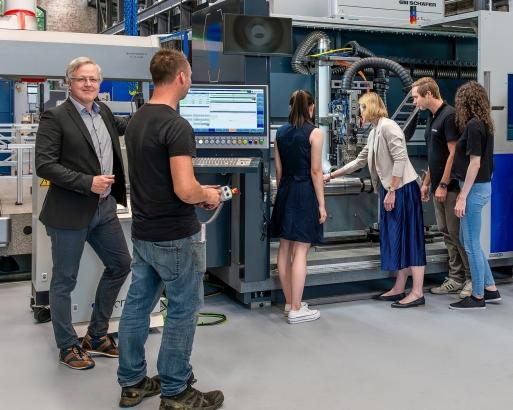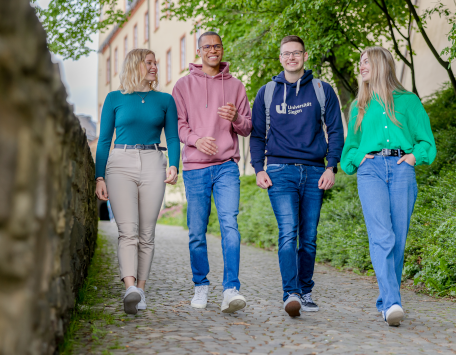Utilizing the potential of old electric cars
Compared with their traditional counterparts, electric vehicles are built with significantly higher shares of non-ferrous metals and novel composites and plastics. That makes them prime candidates for recycling although there has been too little actual movement on this front. Used vehicles are currently torn down by hand, a slow and costly process. A new research training group (Graduiertenkolleg, or GRK) is looking to change that: The GRK brings together specialists from ten different teaching chairs and other institutions at the RWTH Aachen, five professorships at the University of Siegen, two working groups at the FH Munster, as well as a range of researchers at the Wuppertal Institute, the Humboldtn sustainability initiative, and companies from industry. They are seeking to turn the Rheinisches Revier, historically a coal-producing region of NRW, into a leading European hub for research, development, and innovation into the metal-focused recycling of electric vehicles. The Federal Ministry of Education and Research (BMBF) has committed 8.4 million euro in support for the project over the next four years, including 1.8 million euro earmarked for the University of Siegen.
“Here in Siegen, a wide range of colleagues are taking part in the research training group. In particular, we are providing much of the specialized expertise in additive manufacturing and artificial intelligence (AI) methods. The cutting-edge equipment in our INCYTE research building, scheduled to open next year, will also be a boon for the shared research work,” says Siegen's spokesperson for the GRK, Professor Axel von Hehl. “The establishment of the research training group is a major accomplishment for all participants, and a testament to the strength of our outstanding cooperative partnerships. I wish to offer my congratulations to everyone involved. It's also worth noting the tremendous support for doctoral candidates inherent to this project, which is always a priority for our university,” says University of Siegen Rector Stefanie Reese. Five new positions for doctoral candidates at the University of Siegen alone are being created as part of the research training group.
“The project envisions new paths for recycling of different electric-vehicle materials streams, and in particular that this expertise be sited in the Rheinisches Revier,” explains Professor Peter Letmathe, spokesperson for the research training group and holder of the Teaching Chair for Controlling at the RWTH Aachen.
In the area of recyclability, the “Circular E-Cars” group is developing innovative processes for dismantling electric vehicles and reclaiming valuable materials. Resource-efficient, (semi)-automated dismantling processes will be developed using augmented reality and artificial intelligence. Researchers at the University of Siegen are focused in particular on reuse of the aluminum fraction contained in electric vehicles. Their hope is to channel the reclaimed materials consistently, and without the addition of primary aluminum, into the closed-loop secondary material cycle. “That can only succeed if product and process design are fundamentally reimagined to put ease of recyclability in focus from day one. This will require intensive application-focused basic research in the coming years, which is precisely what we intend to push forward in collaboration with the other GRK locations,” says Professor von Hehl.
Alongside its technical research, the GRK is also consciously exploring business models, industry sites, and labor market competencies, with a focus on SMEs. Circular E-Cars bridges multiple transformation platforms, seeking to draw in regional companies and achieve a successful transfer of scientific insights into feasible business models — including REVIERa, the first of its kind anywhere in Germany, which is supporting structural change in the Rheinisches Revier at a local level through a network of over 50 actors. Knowledge transfer will also be supported and safeguarded by the doctoral candidates being trained in the research training group. For 22 of those doctoral projects, solution partnerships are being formed across the various sites to bring together companies and various actors from industry and science for research on all aspects of circular value chains in electric vehicles.
Circular E-Cars is oriented toward the formation of an innovation ecosystem that is expected to produce 7,000 recycling-related jobs in the Rheinisches Revier over the long term and substantially increase the future-readiness of the region.
Background
The University of Siegen is involved in the research training group through the Professorship of Materials Science and Material Testing (LWM), the Professorship of Product Development (LPE), the Professorship of Micro and Nanoanalytics (LMN), the Professorship of International Production Engineering and Management (IPEM), and the Professorship of High Frequency and Quantum Electronics (HQE).

